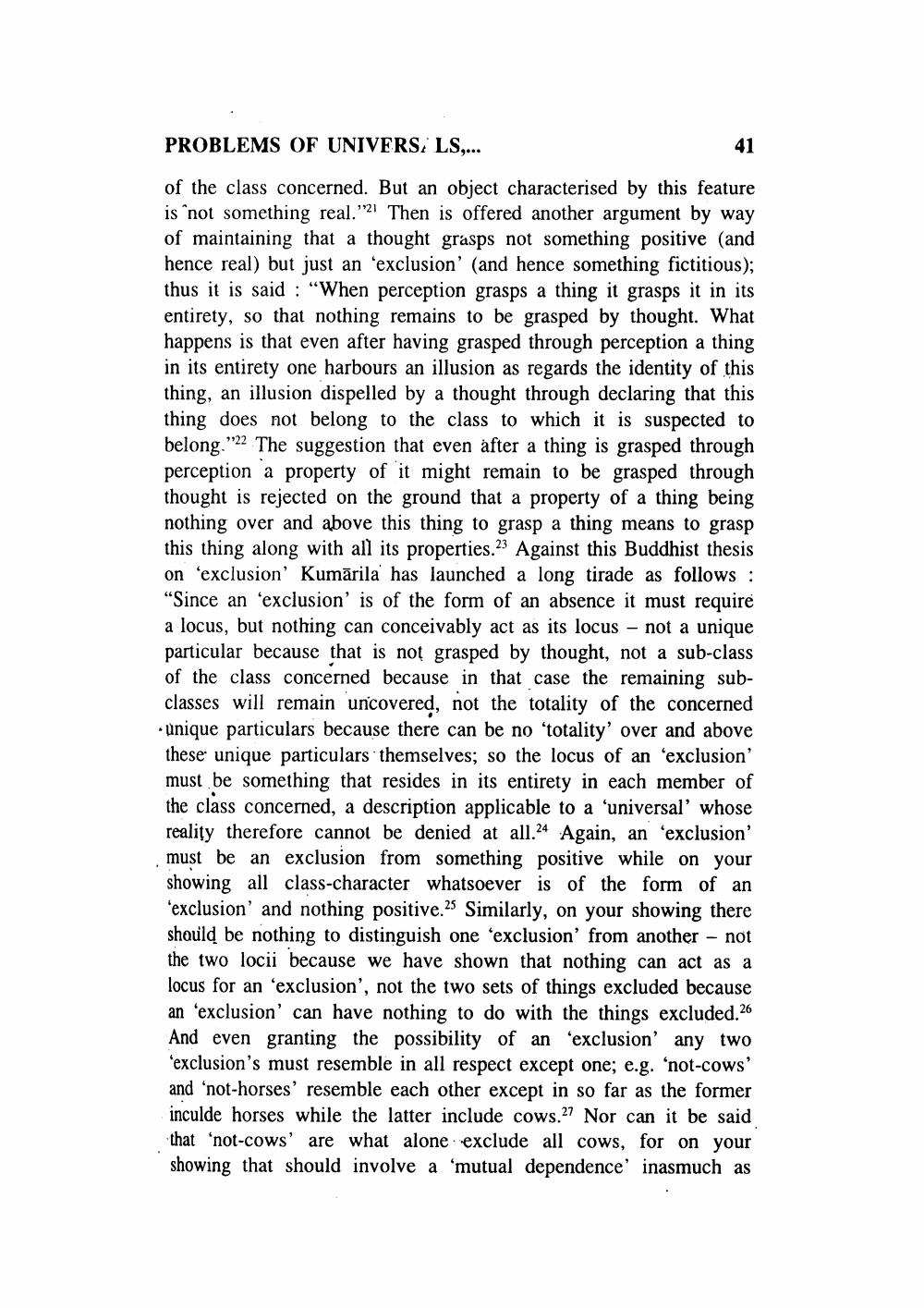________________
PROBLEMS OF UNIVERS, LS,...
41
of the class concerned. But an object characterised by this feature is not something real.'21 Then is offered another argument by way of maintaining that a thought grasps not something positive (and hence real) but just an 'exclusion' (and hence something fictitious); thus it is said : "When perception grasps a thing it grasps it in its entirety, so that nothing remains to be grasped by thought. What happens is that even after having grasped through perception a thing in its entirety one harbours an illusion as regards the identity of this thing, an illusion dispelled by a thought through declaring that this thing does not belong to the class to which it is suspected to belong."22 The suggestion that even after a thing is grasped through perception a property of it might remain to be grasped through thought is rejected on the ground that a property of a thing being nothing over and above this thing to grasp a thing means to grasp this thing along with all its properties.23 Against this Buddhist thesis on 'exclusion Kumārila' has launched a long tirade as follows: "Since an exclusion' is of the form of an absence it must require a locus, but nothing can conceivably act as its locus - not a unique particular because that is not grasped by thought, not a sub-class of the class concerned because in that case the remaining sub
classes will remain uncovered, not the totality of the concerned • unique particulars because there can be no 'totality' over and above these unique particulars themselves; so the locus of an exclusion' must be something that resides in its entirety in each member of the class concerned, a description applicable to a 'universal' whose reality therefore cannot be denied at all.24 Again, an 'exclusion' must be an exclusion from something positive while on your showing all class-character whatsoever is of the form of an 'exclusion' and nothing positive.25 Similarly, on your showing there should be nothing to distinguish one 'exclusion' from another - not the two locii because we have shown that nothing can act as a locus for an exclusion', not the two sets of things excluded because an 'exclusion' can have nothing to do with the things excluded. 26 And even granting the possibility of an 'exclusion' any two 'exclusion's must resemble in all respect except one; e.g. 'not-cows' and 'not-horses' resemble each other except in so far as the former inculde horses while the latter include cows.27 Nor can it be said that ‘not-cows' are what alone exclude all cows, for on your showing that should involve a 'mutual dependence' inasmuch as




